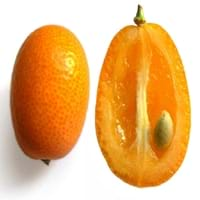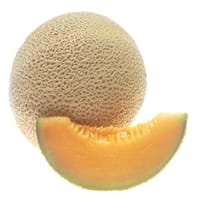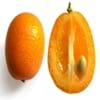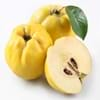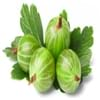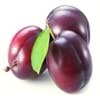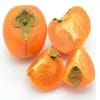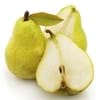Health Benefits
Cancer prevention, Cures gastro-intestinal troubles, Heart care, Increase in haemoglobin, Increases metabolic rate
Cancer prevention, Heart care, Improves eye vision, Prevents diabetes, Reduces stress
General Benefits
Anti oxidant properties, Anti-inflammatory properties, Healing of wounds, Helps in weight loss, Strengthens bones
Boosts immune system, Cures cough, Cures fever, Digestive aid, Eye care, Helps in weight loss
Skin Benefits
Anti-aging benefits, Reduces wrinkles, Treatment of dark spots
Anti-aging benefits, Hydrates skin, Skin rejuvenation, Treatment of skin diseases
Hair Benefits
Promotes longer and healthier hair, Protects hair, Shiny hair
Good conditioner, Prevents hair loss, Protects hair
Allergy Symptoms
Abdominal pains, Coughing, Diarrhea, Digestive Problems, Drop in blood pressure, Hives, Itching, Nausea, Tingling sensation in wrist and face, Vomiting, Wheezing
Abdominal pains, Anaphylaxis, Breathing difficulty, Diarrhea, Dizziness, Hives, Itching of mouth, Nasal congestion, Nausea, Vomiting
Side Effects
Allergic reaction
Allergic reaction, Bloating, Indigestion
Best Time to Eat
As a snack in the late afternoon, Don't consume at night and before bed, Eat the fresh ones, avoid mixing with any other foods, don't eat after meal., Morning time (before lunch), Strictly avoid empty stomach
As a snack in the late afternoon, Don't consume at night and before bed, Eat the fresh ones, avoid mixing with any other foods, don't eat after meal., Morning time (before lunch)
Vitamin B5 (Pantothenic Acid)
Vitamin C (Ascorbic Acid)
Vitamin K (Phyllochinone)
Phytosterol
Not Available
Calories in Fresh Fruit with Peel
Not Available
Calories in Fresh Fruit without Peel
Not Available
Calories in Frozen Form
Not Available
Calories in Dried Form
Not Available
Calories in Canned Form
Not Available
Not Available
Season
Autumn, Winter
Summer
Varieties
Hong Kong, Marumi, Meiwa, Centenniel and Nagami
Hales Best Jumbo, Sweet 'N Early Hybrid, Hearts of Gold, Ambrosia, Athena, Honey Bun Hybrid, Fastbreak and Superstar
Color
Orange, Red, Yellow
Orange
Inside Color
Orange
Creamy Orange
Taste
Sweet, Tart
Juicy, Musky, Sweet
Origin
China
Africa, India
Soil Type
Clay, Sandy loam, Well-drained
Sandy
Climatic Conditions
Cold, Warm
Dry, Hot
Facts about
- The entire kumquat fruit is edible, except few seeds.
- The taste of kumquat skin is sweet while inner flesh is tart.
- There are some hybrid varieties of kumquats such as mandarinquats, orangequats and limequats.
- Cantaloupe is known as rock-melon in some parts of the world.
- Christopher columbus first introduced cantaloupes to north america in 1494.
- The name 'Cantaloupe' as it is cultivated in papal gardens of cantaloupes, Italy.
Other Countries
Brazil, Mexico, Spain, United States of America
Iran, Romania, Turkey, United States of America
Top Importer
United Kingdom
United States of America
Botanical Name
Citrus japonica
Cucumis melo var. cantalupensis
Synonym
Fortunella margarita
Cucumis melo var. reticulatus
Subkingdom
Tracheobionta
Tracheobionta
Division
Magnoliophyta
Magnoliophyta
Class
Magnoliopsida
Magnoliopsida
Subclass
Rosidae
Dillenhidae
Order
Sapindales
Cucurbitales
Family
Rutaceae
Cucurbitaceae
Species
C. japonica
C. melo
Generic Group
Citrus fruit
Gourd
Difference Between Kumquat and Cantaloupe
We might think that Kumquat and Cantaloupe are similar with respect to nutritional value and health benefits. But the nutrient content of both fruits is different. Kumquat and Cantaloupe Facts such as their taste, shape, color, and size are also distinct. The difference between Kumquat and Cantaloupe is explained here.
The amount of calories in 100 gm of fresh Kumquat and Cantaloupe with peel is 71.00 kcal and Not Available and the amount of calories without peel is Not Available and 34.00 kcal respectively. Thus, Kumquat and Cantaloupe belong to and category.These fruits might or might not differ with respect to their scientific classification. The order of Kumquat and Cantaloupe is Sapindales and Cucurbitales respectively. Kumquat belongs to Rutaceae family and Cantaloupe belongs to Cucurbitaceae family. Kumquat belongs to Citrus genus of C. japonica species and Cantaloupe belongs to Cucumis genus of C. melo species. Beings plants, both fruits belong to Plantae Kingdom.
